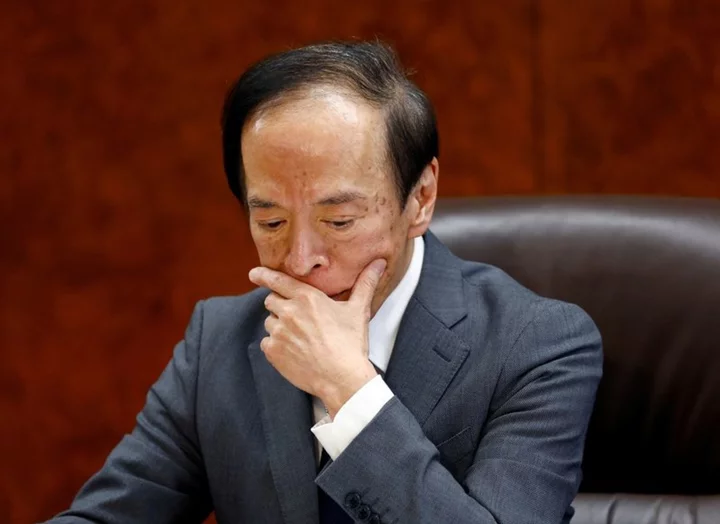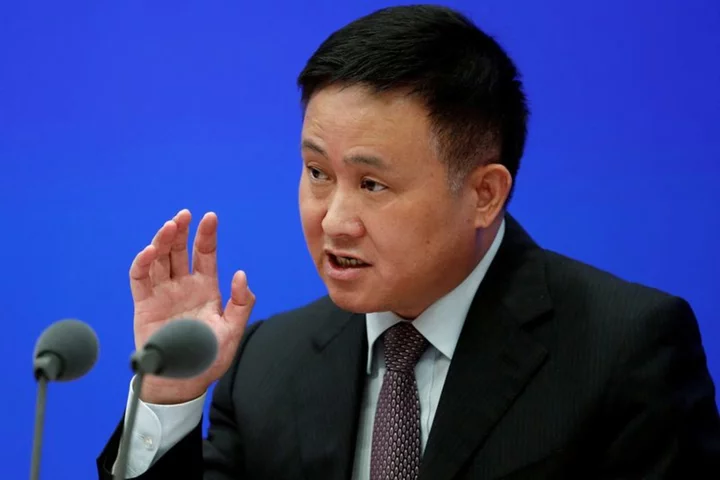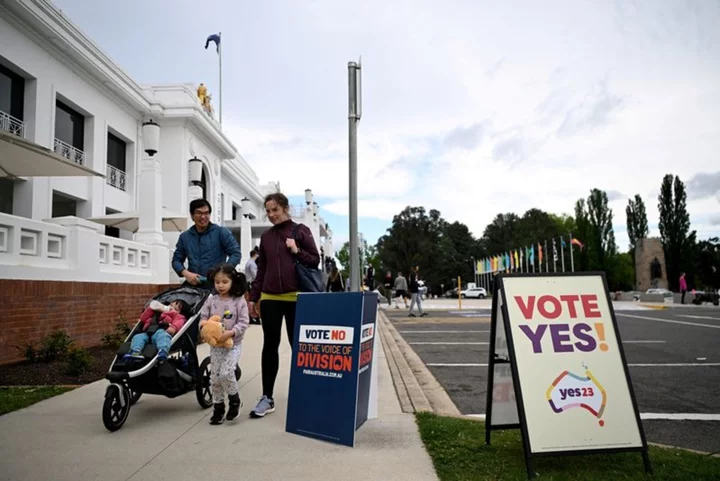By Leika Kihara
TOKYO The Bank of Japan will scrutinise the effects and side-effects of its unconventional monetary policy tools deployed during a 25-year battle with deflation in a scheduled long-term review, Governor Kazuo Ueda said on Friday.
Japan's bitter memories of its decades-long battle with deflation hang heavily over the central bank's deliberations over taking a first modest step away from ultra-loose monetary policy, even as inflation and wages creep up.
Among the side-effects to be weighed will be the effect the central bank's monetary easing steps had on the banking system, Ueda told a press conference.
In the review expected to take a year, or 1-1/2 years, the BOJ will also look at how structural factors like globalisation and demographics affected Japan's economy and prices, he added.
Ueda unveiled the review plan in April, but offered few details at the time, beyond saying it would aim to draw lessons from the BOJ's past experience battling deflation.
Having joined in the deflation battle as a BOJ board member from 1998 to 2005, Ueda knows all too well the danger of a premature exit from ultra-loose policy.
The BOJ became the first central bank to take short-term interest rates to zero in 1999, to fend off a domestic banking crisis and heightening risks of deflation.
After experimenting with quantitative easing and purchases of risky assets, in 2013 it deployed a massive stimulus programme under former Governor Haruhiko Kuroda to fire up inflation to its 2% target in roughly two years.
When the radical asset-buying programme failed to prop up inflation, the BOJ took short-term rates to negative territory in 2016 and introduced a cap on the 10-year bond yield.
While such moves helped keep borrowing costs low for companies, they were criticised by analysts for distorting market pricing and crushing bank margin.
Many analysts expect Ueda to start phasing out his predecessor's radical stimulus programme later this year.
(Reporting by Leika Kihara; Editing by Clarence Fernandez)









